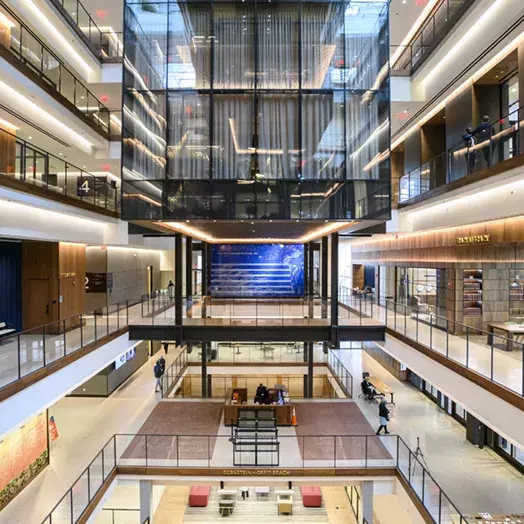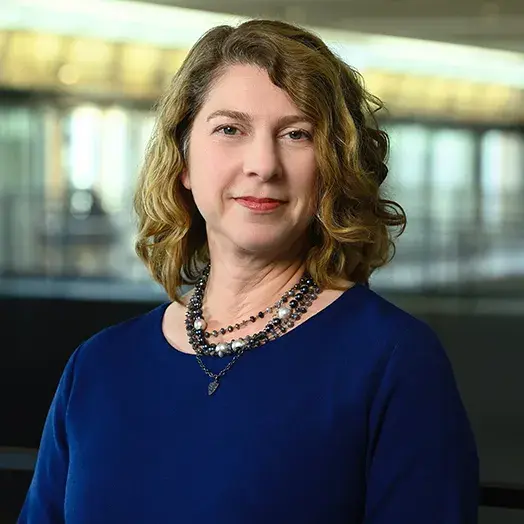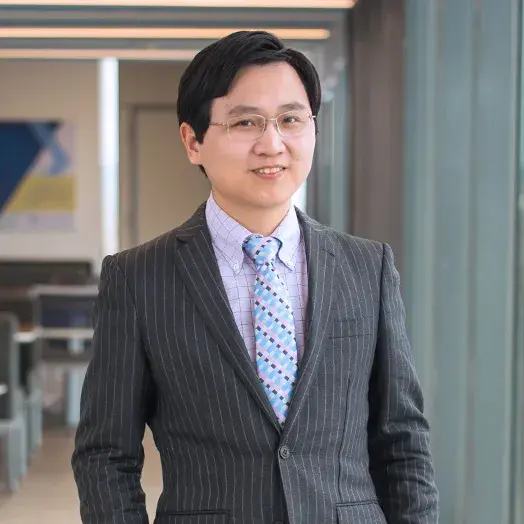New “Generative AI for Business” course helps students from engineering, policy, and other disciplines understand the potential of AI.

At the Nexus: Exploring the application of generative AI
With the release of ChatGPT in late 2022, generative AI has taken off in all sectors of the business world with its ability to perform tasks, make decisions and produce content without any human intervention.
A new course offered by Minghong Xu and Graeme Warren, both faculty members at Johns Hopkins University’s Carey Business School, will bring together Hopkins business students with graduate students from other disciplines to explore the applications of these dynamic AI models across a variety of business sectors.
Offered in the spring of 2025, “Generative AI for Business” will unfold over eight weeks at the Johns Hopkins University Bloomberg Center in the heart of Washington, D.C. It is one of 40 wide-ranging projects funded through the Johns Hopkins Nexus Awards, a university-wide initiative launched in 2023 to support convening, research and teaching anchored at the Bloomberg Center at 555 Pennsylvania Ave. NW.
“The Bloomberg Center plays a pivotal role in the teaching of generative AI, with its unique location significantly enriching the course content,” says primary instructor Xu, an assistant professor of practice at Carey Business School. She notes that nearby cultural institutions such as the National Archives and the National Gallery will provide important resources for students engaged in the course’s team-based projects.
What to Read Next

research
Do you trust the American health care system? Can policymakers help you trust it more?Cutting-edge content
Key to the mission of “Generative AI for Business” is its interdisciplinary focus.
“Carey Business School students enrolled in this course will be encouraged to collaborate with counterparts from other Johns Hopkins schools in science, engineering and policy to collect business needs for generative AI,” says Warren, an assistant professor of practice.
He notes that the course, which will be offered through a hybrid model to include students at multiple Hopkins locations, is specifically designed to provide sought-after technical and non-technical literacy in AI to students who are not computer science or engineering majors, with guest speakers from the broader AI community. Faculty planners expect about 150 students to enroll in the course’s four sections.
Xiangyang Li, an associate teaching professor at Hopkins’ Whiting School of Engineering who directs the Whiting School’s full-time Master of Science in Security Informatics program, will serve as a faculty collaborator on the course.
In addition to lectures that offer information on the theoretical underpinnings of today’s advanced AI models — such as ChatGPT and Gemini — and discussions about the ethical and legal issues of generative AI, students will learn about cutting-edge techniques to intelligently create new images, videos, conversations, and documents.
For the text-generation component of the course, the instructors will utilize resources from the National Archives to engage students in discussions about AI’s impact on historical documents and related ethical considerations. The image-generation portion has a high-end artistic perspective.
“A visit to the National Gallery will give students insights into art history and on how image generation can add value,” notes Xu.
A rapidly evolving field
Working in interdisciplinary teams, students will ultimately engage in a hands-on project — developing use cases for generative AI in domains such as health care, financial services, retail, real estate, cybersecurity, education, and language studies.
“We’ll be encouraging teams to work with an external collaborator to capture the business needs of generative AI and develop potential solutions,” says Warren, who himself has founded and co-founded several start-ups.
Given how quickly the field of generative AI is growing and evolving, the instructors expect to continue refining the new course throughout the fall, ultimately hoping to renew the project and offer the course again.


